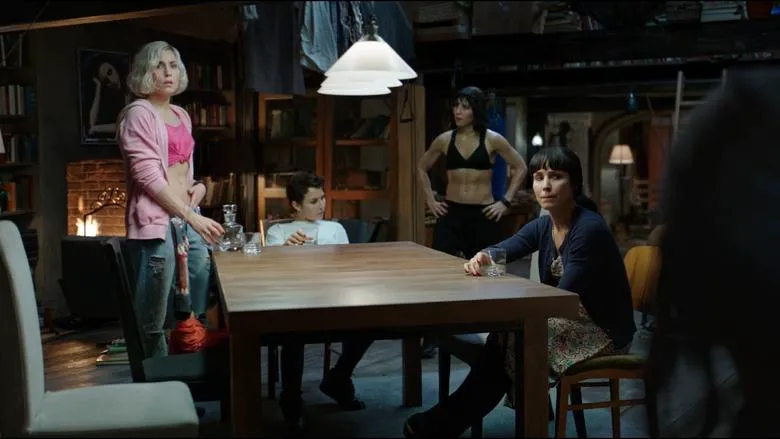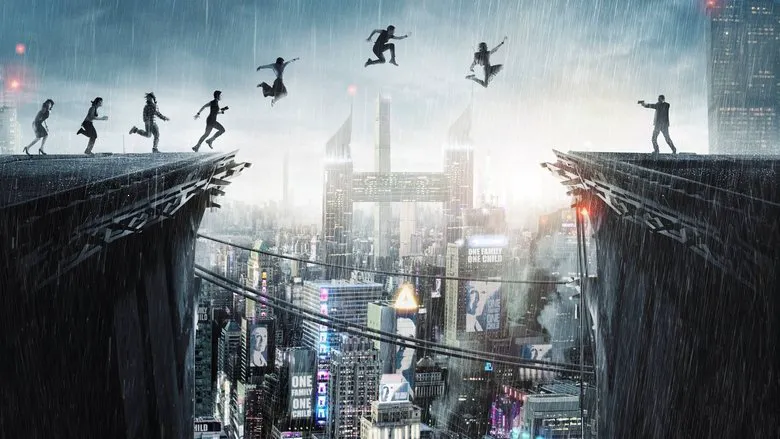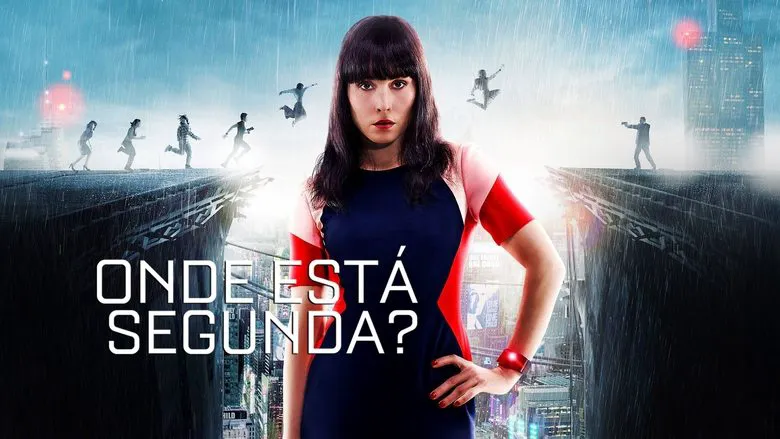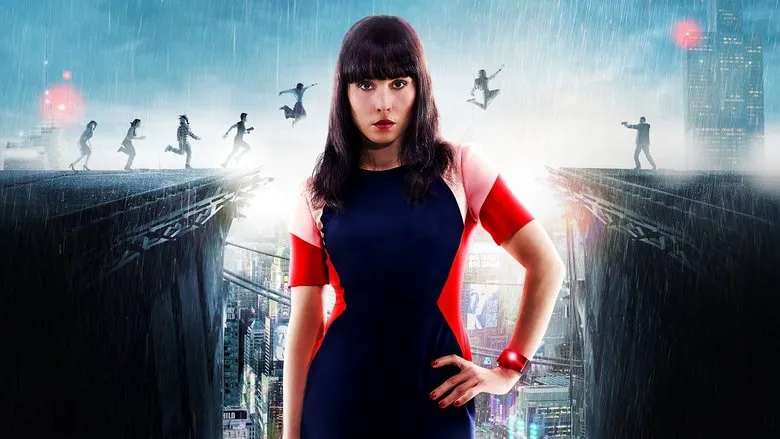Seven Sisters: A Dystopian Thriller Anchored by Noomi Rapace’s Tour de Force
While Noomi Rapace delivers a breathtaking performance as seven identical sisters, this dystopian sci-fi thriller, set in an overpopulated world, struggles to fully transcend its budgetary limitations. It’s a compelling watch thanks to Rapace, but perhaps not the blockbuster it aspires to be.
The Dystopian Reality
The film paints a grim picture of the near future: ecological devastation, rampant overpopulation, and the ethical quagmire of genetic experimentation have brought the world to its knees. Europe responds with the draconian “One family – one child” policy. “Surplus” children are cruelly placed in government-controlled cryosleep, awaiting a supposed “better time.”
 The oppressive atmosphere of a world struggling with overpopulation is visually conveyed throughout the film.
The oppressive atmosphere of a world struggling with overpopulation is visually conveyed throughout the film.
Terrence Settman faces an impossible choice when his wife gives birth to septuplets. Unable to choose which child should live, he secretly raises all seven daughters, naming them after the days of the week: Monday, Tuesday, Wednesday, Thursday, Friday, Saturday and Sunday. As they approach their thirtieth birthday, the sisters have meticulously crafted a system of deception, each taking turns venturing into the outside world while maintaining a single identity. Their fragile equilibrium is shattered when Monday mysteriously vanishes, forcing the remaining sisters to risk everything to uncover the truth behind her disappearance.
Seeds of the Story and Echoes of Potential Futures
The original screenplay by Max Botkin gained recognition on the “Black List” back in 2010. Interestingly, the initial concept centered around seven brothers, not sisters, showing how concepts can evolve during pre-production.
Like the most impactful political analyses that warn of impending crises, science fiction often operates as a cautionary tale. Visionary authors explore potential future scenarios, highlighting the dangers of utopian societies that mask their oppressive control with a veneer of concern for their citizens, fostering a deep revulsion for these seemingly “perfect” worlds.
 The film’s use of urban environments helps to creates a believable, yet unsettling future.
The film’s use of urban environments helps to creates a believable, yet unsettling future.
Director Tommy Wirkola cites “Children of Men,” “Blade Runner,” and “Looper” as key influences in establishing the film’s futuristic atmosphere. He masterfully blends elements of each to create a unique, yet familiar world.
Raising Vital Questions
“Seven Sisters,” a Netflix release, may not reach the lofty heights of Isaac Asimov, Philip K. Dick, Robert Sheckley, or the Strugatsky brothers. However, it effectively tackles relevant and pressing issues that future generations will undoubtedly confront. Overpopulation, migration, famine, genetically modified foods, birth control, and the social responsibility of the state are no longer confined to the pages of science fiction novels; they are now everyday headlines. In the tradition of compelling science fiction, “Seven Sisters” resists easy answers, challenging viewers to question even the most seemingly obvious moral absolutes.
 The plot weaves in elements of suspense, forcing the viewer to wonder, what might tomorrow bring?
The plot weaves in elements of suspense, forcing the viewer to wonder, what might tomorrow bring?
Action-Packed Yet Grounded
While rooted in deeper philosophical considerations, “Seven Sisters” primarily functions as an action thriller. Due to budgetary constraints, director Tommy Wirkola forgoes the large-scale visual extravaganzas of films like Spielberg’s “Minority Report” or Nolan’s “Inception.” The visuals are more akin to a low-budget sci-fi production, occasionally bordering on TV quality, but they still effectively convey the oppressive atmosphere of a bleak future. Though the film suffers from minor plot holes and stylistic shortcomings, including the highly improbable fact that the sisters’ secret remains concealed for thirty years, these concessions are necessary for the story to unfold.

Noomi Rapace: A Masterclass in Acting
Noomi Rapace delivers a powerful, tour-de-force performance. Best known for her portrayal of Lisbeth Salander, the Swedish actress gives an incredibly nuanced and believable performance, embodying each of the seven sisters with distinct characteristics and grace. While some viewers might recall Tatiana Maslany’s phenomenal work as multiple clones in “Orphan Black,” such a feat is rarely attempted, or as successfully executed, in film. It’s not merely about complex camera shots, skillful makeup, and meticulously designed costumes; Rapace imbues each sister with unique personalities, temperaments, and even physical mannerisms. Her magnetic performance keeps the audience engaged throughout the film’s runtime.
Verdict
While possessing several commendable qualities, “Seven Sisters” ultimately falls short of its full potential and possible greatness. The ending feels rushed and lacks impact, Willem Dafoe’s role is disappointingly minor, and Glenn Close’s character feels somewhat underdeveloped,. Though the thought-provoking themes and Rapace’s phenomenal performance leave a lasting impression, “Seven Sisters” might not be a film that lingers in the memory for an extended period. Regardless, Netflix should be commended for producing a worthwhile sci-fi film in that is outside the current tropes of zombie and paranormal films.